Thank you to LIANZA for the opportunity to attend the LIANZA 2023 Conference. There were so many excellent and informative sessions. At the top of my highlight list would be those related to library services for Māori and those discussing AI.
LIANZA 2023 offered a robust and well-rounded discussion on mātauranga Māori and te ao Māori. Keynote speaker Professor Rangi Mātāmua’s presentation on Māori astronomy and Matariki, grounded in the history of his family, and the work he is doing to restore mātauranga Māori provided the context and set the scene for the sessions that followed.
Dr Hana O’Regan’s keynote enhanced this further, highlighting the ongoing colonisation Māori have suffered, how many issues we face in Aotearoa are rooted in this history, and the journey and hope of moving forward.
Against this background, the sessions by Terissa Goldsmith on The Ngāi Tahu core list at Christchurch City Libraries, followed by the Te Āhua o te mātauranga: the nature of knowledge by Ngapiu Tainui-Maclure, where library resources important to Ngāi Tahu are collated and represented, that contribute to mātauranga Māori and te ao Māori, and support decolonisation.
Dawn Carlisle’s presentation, A transdisciplinary design of a future library: an insider’s approach, showed how libraries can implement practical support through the library guides and webpages she created at Wintec as a result of her research.
I found the combination of these presentations inspirational. My most significant takeaway is that there is plenty of opportunity to improve how libraries deliver for Māori. The initiatives presented provided ideas to reflect upon and potential areas to improve, which I can take home to the library where I work.
A further high point was the opportunity to learn more about AI through attending the sessions by Nick Scullin and Kathryn Andrews, Keen on Keenious? AI versus traditional database searching, and Shiobhan Smith’s Artificial Intelligence and Libraries: What is the fuss? I had not investigated AI in any great detail, but I had heard a lot about the problems posed, so learning about the benefits AI tools can offer libraries, particularly in the academic library context, was an excellent counterbalance to all the negative press AI has received. I’ve been sharing my learnings with my colleagues and will look into Keenious and the AI websites Shiobhan presented.
One last highlight I must mention is the final-day tour of some of the libraries in Christchurch. It was uplifting to meet and hear from so many passionate librarians doing wonderful work for their library customers in so many varied ways.
Mandy Wall lives in the (normally) sunny Hawke’s Bay and works as a Collection Services Librarian at Te Pūkenga Eastern Institute of Technology. Mandy has been a librarian for about 14 years, working across special, law, and public libraries, and this is her first year working in an academic library.
Wow! LIANZA’s 2023 conference delivered a masterclass in weaving.
The conference theme, ‘Ngā aho – weaving our threads of knowledge together’, was evident throughout – from the swift processing of registrations and the flow of participants from the auditorium to the breakout rooms, merging and parting, meal breaks, kōrero and workshops, it created a vibrant tapestry.
The beautiful Te Pae, our venue for two days, is sleek and new, in contrast to, yet also at home among, the stone provincial council chamber and the bandaged cathedral, genuinely weaving the old and the new together.
President Richy Misilei set the tone for the conference in his welcome speech, reminding us of the many connections across the library sector and the opportunities for collaboration, and encouraging us to be innovative and responsive while holding our communities at the heart of our work. He reminded us of the value we bring to our communities and urged us to communicate that value more loudly and widely. Throughout the conference, Richy seamlessly connected the sections and speakers with humour and detail, moving us from one to the next, a single garment from many diverse threads.
The organisation of the conference was superb. Even the last-minute cancellation by a keynote speaker – every organiser's nightmare scenario – barely caused a ripple in proceedings. Dan Walker stepped into the keynote speaker role and owned it, giving one of the most interesting presentations at the conference.
My favourite keynote was the interview with historians Dr Andrew Pettegree and Dr Arthur Weduwen, in which they discussed their book, The Library: A Fragile History. This was a fascinating tour of the library from its elite origins – “no idle books and riff-raff” for the founder of the Bodleian Library – to the public library movement and the current metamorphosis to a community hub. And while the presenters felt that the future of libraries is diverse and uncertain, they saw libraries had an advantage in providing a space to find the unexpected. I have joined the waiting list at my local library to read more of their research.
Day three of the conference was a choice of library tours. This was an inspired decision by the conference organisers, as nothing beats seeing how things work in the real world. I chose tour five – a walking tour of libraries and facilities in the central city. From Ara to the art gallery, the law courts to Tūranga, it was a wonderful opportunity to experience libraries in different sectors to my own and to see how they were run, who they served and what services they offered.
The manaakitanga and generosity of those librarians in hosting and sharing their spaces and experiences was humbling and demonstrated why, as Canadian National Librarian and Archivist Leslie Weir stated, librarians are the most trusted profession in Canada and the second most trusted worldwide. This tour was a highlight and a fitting end to a conference filled with positivity.
I want to thank LIANZA for the Hikuwai Community Conference Grant I was awarded, which enabled me to attend this fabulous event. I have learned, admired, and tucked away ideas to adapt for my own library space. It was three days of invaluable information, discussion, fellowship and fun.
Diana McMahon-Reid lives in Auckland and has a library background in the secondary and tertiary library sectors. Diana is a subject librarian at Te Pūkenga – Manukau Institute of Technology and the co-convenor of LIANZA TEL SIG, the tertiary special interest group.
I thoroughly enjoyed attending the 2023 LIANZA conference and am very grateful for receiving the Murihiku LIANZA Regional Community Conference Grant. My first observation on entering the conference venue was not the amazing Te Pae building – although it was impressive – but the buzz among the attendees. It felt exciting and positive, and the conference carried this feeling right through the next couple of days.
The keynotes were inspirational. I especially enjoyed the personal journey Professor Rangi Mātāmua took us on. It set the tone perfectly for understanding the role of libraries as the aho between knowledge and people and also highlighted the difference between studying a culture and living it, providing thought for how libraries can support both.
I attended the workshop by Kāpiti Coast District Libraries on ‘Te Tōtara: rethinking the development of a diverse workforce’. As someone who has created a capability framework and provided feedback on the Te Tōtara model when it was being developed, I was interested to see how it was being used ‘in the wild’. I was greatly impressed with how Kāpiti Coast District Libraries have engaged with Te Tōtara and the honesty of the presenters, who were not afraid to talk about the difficulties encountered in getting their team onboard. They had very quickly grasped the power of the metaphor. They gave real-life examples of where it could explain roadblocks (not preparing the soil) and provide ways of discussing difficult or complex problems (larger trees allowing light to reach the smaller trees). I came away from the event very excited about the possibilities of this framework and am looking forward to bringing it to colleagues at the University of Otago for further discussion.
On the last day, I signed up for the walking tour taking in Te Pūkenga Ara Institute of Canterbury, the New Zealand Law Society and Judges libraries, Te Puna o Waiwhetū Christchurch Art Gallery and Tūranga Christchurch Central Library. It was a lot of walking, but I regret nothing! Each venue had amazing hosts highlighting features, spaces, collections and services, and answering all questions. As someone working in a university library, I relished seeing what colleagues in other types of libraries are doing. The Ara One Button Studio was a great innovation – it allows students to practice and record their presentations and only requires a USB with decent capacity to get started.
This was my first LIANZA conference, but I am certain it will not be my last. I encourage other new LIANZA members to apply for a LIANZA conference grant in 2025. Once again, thanks to LIANZA for allowing me to be a recipient of a LIANZA Regional Community Conference grant.
Shiobhan Smith is the Associate University Librarian (Customer Experience) at Te Whare Wānanga o Otāgo the University of Otago. She has more than 17 years of experience working in academic libraries, including roles educating researchers on open access and supporting the use of OUR Archive, the University of Otago’s institutional repository.
I was lucky enough to be awarded the Ada Fache Grant for travel expenses to the LIANZA conference. Before 9am there were queues of people waiting to register, but fortunately, I had arrived earlier – what great attendance for the first in-person conference since 2019.
The opening video presented real people telling their stories about what libraries mean to them. It was wonderful to hear the experiences of a wide range of library users.
In his address, LIANZA President Richard Misilei noted that we need to effectively communicate our value to leaders to prevent us from being seen as just rooms with books, which are easy targets when cuts are needed.
We listened to a fascinating keynote by Professor Rangi Mātāmua about mātauranga, and he passed on his grandfather’s wisdom that “knowledge that isn’t shared isn’t knowledge”.
In a well-attended breakout session on ‘Challenging access to information’, Trish Hepworth noted that challenges to books are nothing new, something that several other speakers also mentioned. She stated that when people struggle, it is easier to turn to conspiracy theories to explain a world that appears out of control. Fortunately, LIANZA is developing a toolkit to deal with these challenges, which Louise LaHatte discussed in her presentation.
On a lighter note, the lively SPARKY mobile outreach van was an entertaining session. It was interesting to hear about the requirements for SPARKY – compact, smart, green and not too heavy. Its bubble machine sounded fantastic.
Dr Hana O’Regan gave a very insightful talk on how Māori have been excluded from knowledge and poorly treated by the education system. Professor Beth Wahler from the US talked about the increasing psychosocial needs of library patrons and the impact that dealing with these needs can have on library staff. I can’t wait to read her book. Loopy Tunes presented a great workshop – there was not much sitting and much moving in that session. Who can forget Dan Te Whenua Walker’s dance? Let alone all his work incorporating indigenous beliefs and knowledge into Microsoft and the other corporations he has worked at.
We were lucky with the weather on our walking tour of Tūranga, the Law Society Library, Te Pūkenga (Ara) and Te Puna o Waiwhetū. All the libraries were interesting, and I was intrigued by the bird concept at Tūranga, with each floor relating to a different bird. The interactive photo wall made me very envious, while he art installations around Ara library were intriguing. At Te Puna o Waiwhetū, we learned about the poison book project and the conservation and storage areas. By the time we reached the end of the day, we’d walked over 15,000 steps!
Some of my takeaways were the need to promote what libraries do and to work in partnership or collaboration with other providers. A library is a community hub that must be connected to our user base to stay alive.
It was a most enjoyable conference, and meeting other librarians and vendors was excellent.
Sharon Cornwall is from Waikato and has worked in various libraries, including the University of Waikato library, Waikato District Health Board library, Wintec Library and IPU in Palmerston North, and worked in England and Saudi Arabia for a short time. Along the way, she has been associated with various LIANZA committees and is currently on the LIANZA Professional Registration Board. She has been at HB Williams Memorial Library in Gisborne since March 2021, where she manages the collections area.
It was a privilege to be at this conference, and so good to connect with colleagues from around New Zealand in person again. These aren’t just other people who work in the GLAMMIR sector, they are partners in providing library, gallery and museum experiences for this country. A conference like this allows us to share, support, challenge, encourage and inspire each other. And that is what we did.
PJ Bramley gave an illuminating presentation about the experiences of neurodiverse staff in information organisations. He was open, honest, and helpful.
There were several sessions about innovative library programmes and products. Phil Clarke and his team at the IHC Library have done exemplary work on creating a co-designed, outcome-focused game to support rangatahi with special needs to live independently. If you have yet to look at Stand Tall, then do it now! It is a great resource – be prepared to offer it to our customers. Please look at Queenstown Lakes Libraries’ Milk Bottle People for a taster on one of the several other programmes I learned about.
For me, the standouts of the conference were some of the keynote speakers. Michael Peter Edson, and Professor Andrew Pettegree and Dr Arthur Weduwen gave us two keynotes from entirely different perspectives. Michael Edson was focused on the future, looking at libraries and their role in society and social issues. He inspired us to get involved in social issues and lead community conversations. Professor Pettegree and Dr Weduwen had a perspective on the future that drew on their understanding of the history of libraries. They reminded us to be aware that not everyone in our community is moving at the same pace and that we must draw people in. The juxtaposition of these two keynotes left me questioning how we take our communities on the journey with us and how we facilitate engagement with new ideas and social change.
It was a treat to hear Professor Rangi Mātāmua speak, and we were honoured by his acknowledgement of the sector’s work on Matariki. He didn’t demand more thought or action from us so much as provoke a desire to do more and to do it well.
Dr Hana O’Regan did not hold back and was much more explicit about the appalling wrongs of the past and the need to be very thoughtful and aware in our work now. Coloniality was a new term, but it describes a concept I recognise. Dr O’Regan left us with many things to think about and challenges to rise to. What will I do to make sure the whole story is told, and that mātauranga Māori is understood, handled and accessed on an equitable footing with Eurocentric knowledge and its frameworks?
Kate Ogden is the team leader for New Brighton, Parklands and Aranui libraries in the east of Christchurch. Kate started her career in tertiary libraries in London, and in the 22 years since emigrating to New Zealand, she has had 16 different jobs in Christchurch city libraries. She is passionate about the work public libraries do to improve people's lives in our communities
My primary purpose in attending the conference was to participate in an information session with other IFLA committee members to promote sector engagement with IFLA (the International Federation of Library Associations and Institutions).
This session was proposed to give feedback from the World Library and Information Congress (WLIC) in Rotterdam and to give some advance information on WLIC 2024 in Dubai. With the cancellation of the event in Dubai, it seemed even more critical to give New Zealand colleagues a future perspective on the meaning of IFLA for the wider Asia-Pacific region.
By good fortune, two senior IFLA colleagues were present: Leslie Weir, Librarian and Archivist of Canada and President-Elect of the IFLA, and Te Paea Paringatai, Chair of the Professional Council of the IFLA Governing Board. IFLA committee representatives Elizabeth Jones, Kim Taunga and Cellia Joe-Olson were also at the session.
Leslie and Te Paea commented on IFLA policies in a challenging world. At the same time, we spent some time explaining how to get involved in the IFLA committee and project work, and the personal and professional benefits that can provide. I was keen to highlight that librarians from New Zealand have significantly contributed to different facets of IFLA work over many years – we should be proud of that contribution and continue it. This work was in collaboration with other countries in our region. We currently have an Australian, Vicki McDonald, as President of IFLA and we are represented on the Regional Division Committee by Kim Taunga, LIANZA's past president. Our Pacific library colleagues are looking to us for support.
More support for this international work is needed. Colleagues wanting practical advice on using their skills and expertise internationally may contact me at [email protected].
MY TAKE-OUTS ON THE MAIN PROGRAMME
For me – somewhat an ‘outside’ observer with a head full of years of international work for IFLA but remembering Christchurch as it once used to be – this conference was an exceptional experience. It was small by international standards, but right up there with the best due to the quality of the venue, the organisation, the general ambience encouraging thinking and networking and the quality of the speakers.
There were some ideas that stood out clearly from presentations and discussions.
- Maintaining people’s trust in information, and library services as providers of truthful information, in the face of what seem to be campaigns of misinformation and disinformation is a worldwide problem.
- Ensuring that young people are given the most trustworthy digital information or books to read for pleasure – and combatting retrograde attempts at censorship.
- Being conscious of ‘coloniality’ – Hana O’Regan was strikingly clear on this – coming to terms with it, overcoming it and helping develop new cultural perspectives for the country, which bring together the people of the land and the people of the treaty.
- Building multicultural awareness into the language of library services and the very fabric of the buildings that contain and deliver these services, whether that is Tūranga in Christchurch or Te Ara Tahi in Wellington.
- Modelling a mindset of accepting and defending human rights, equality, diversity and freedom of expression.
- It was appropriate to be in Ōtautahi Christchurch, to discuss the trauma of seismic events in all senses of the word.
- “People matter most,” said Beth Wahler in her thoughtful presentation on trauma among library staff in the US. How to support staff experiencing PTSD or burnout? She advocated for applying reflective practice, with self-care and community care, and this resonated with the conference audience.
- Taking advantage of the benefits of AI to run our services, but not fearing it – there is no tool that society cannot put to both good and bad use.
- Encouraging reading in a society where people’s attention spans and tolerance of complexity and long sentences are getting shorter.
Winston Roberts is the former chair of the Regional Division Committee of IFLA for Asia-Oceania and a member of the Regional Council. Winston was a senior business advisor/international with Te Puna Mātauranga o Aotearoa National Library of New Zealand until his recent retirement.

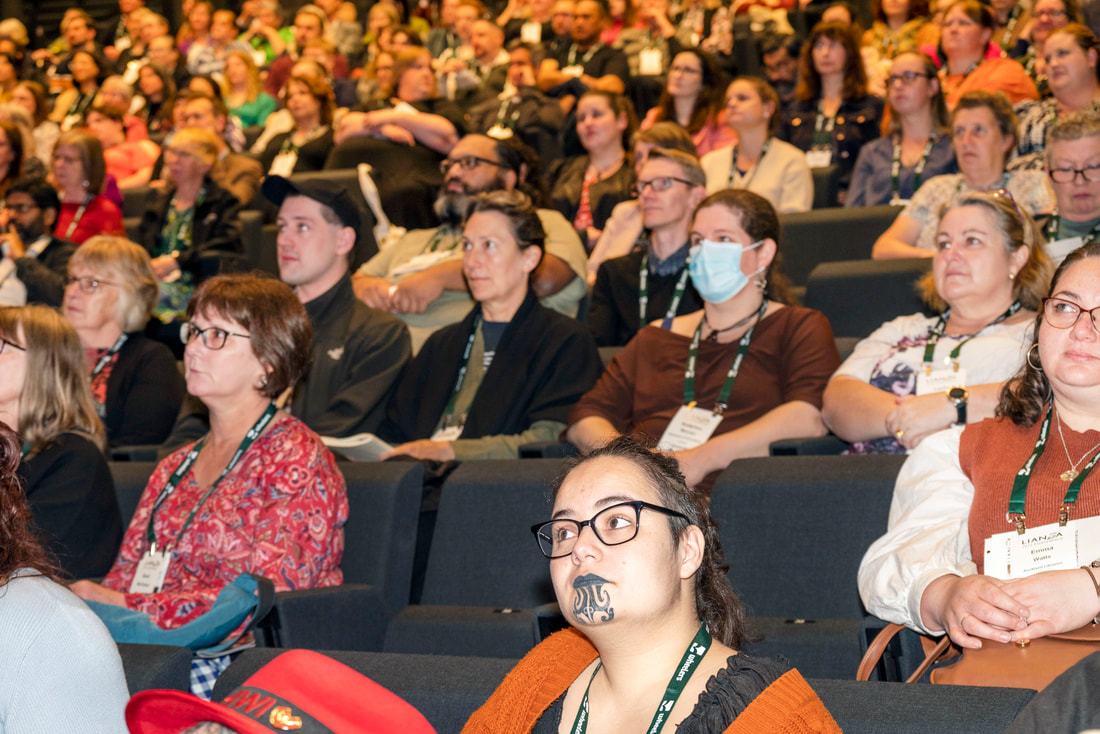
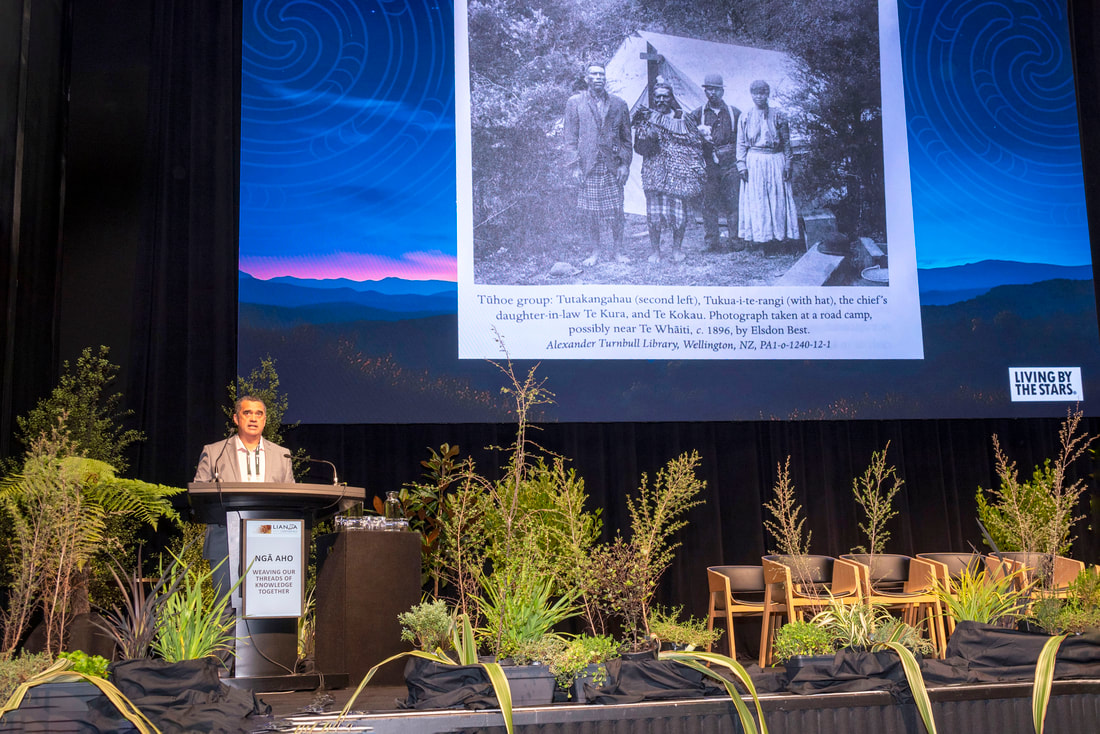
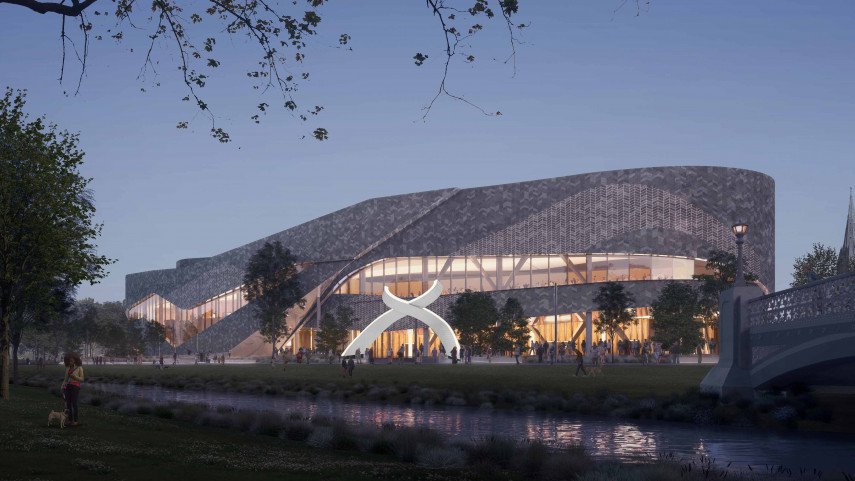
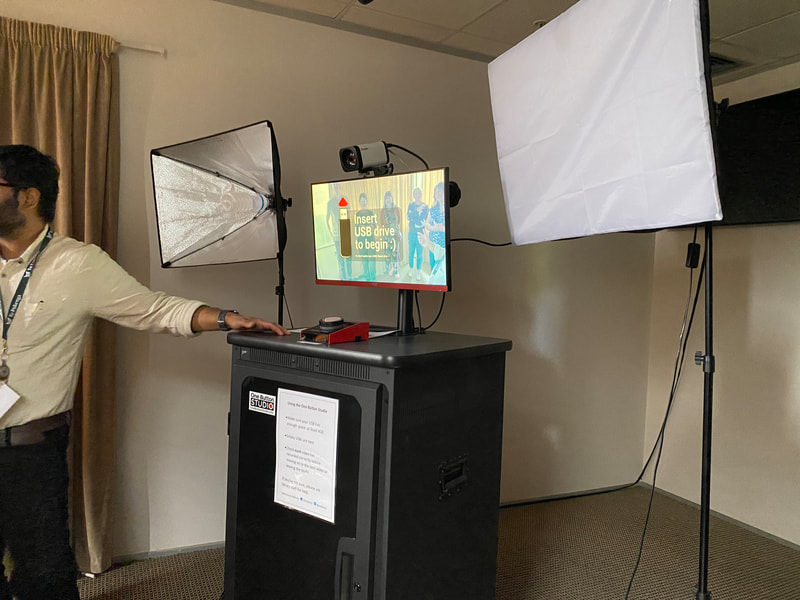
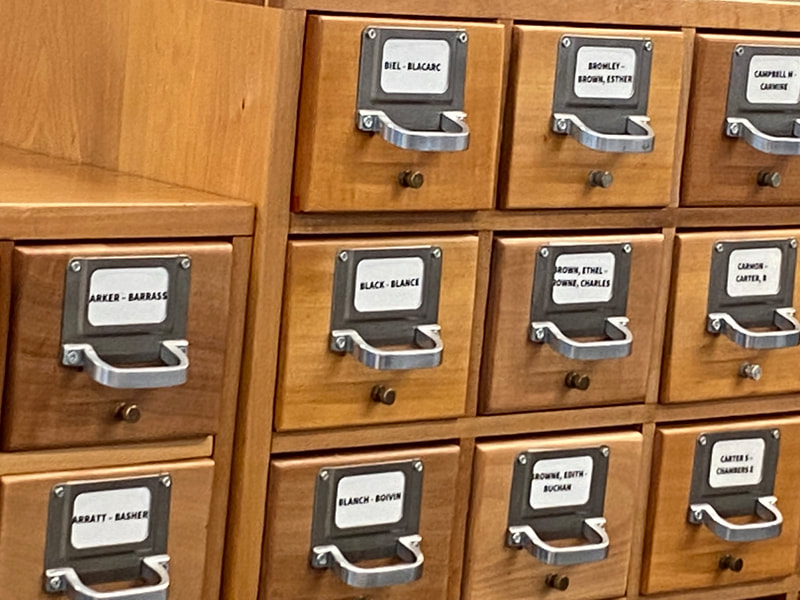
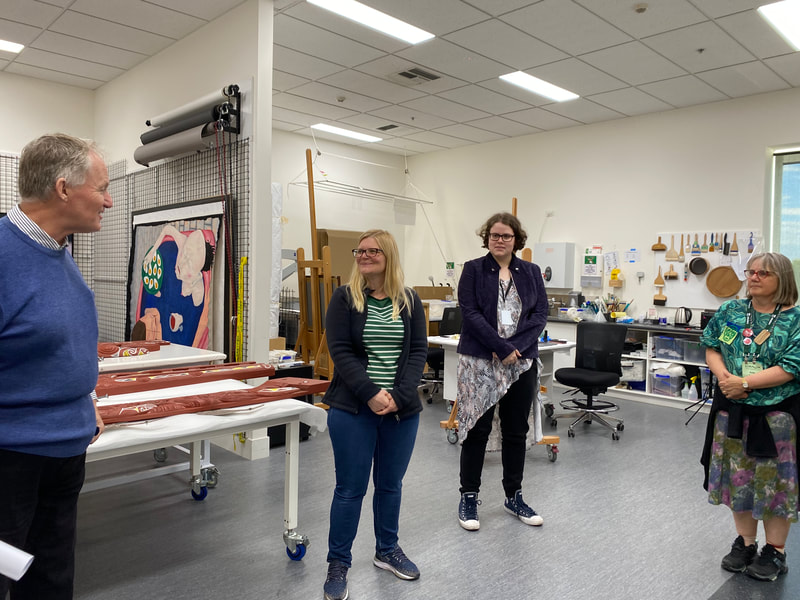
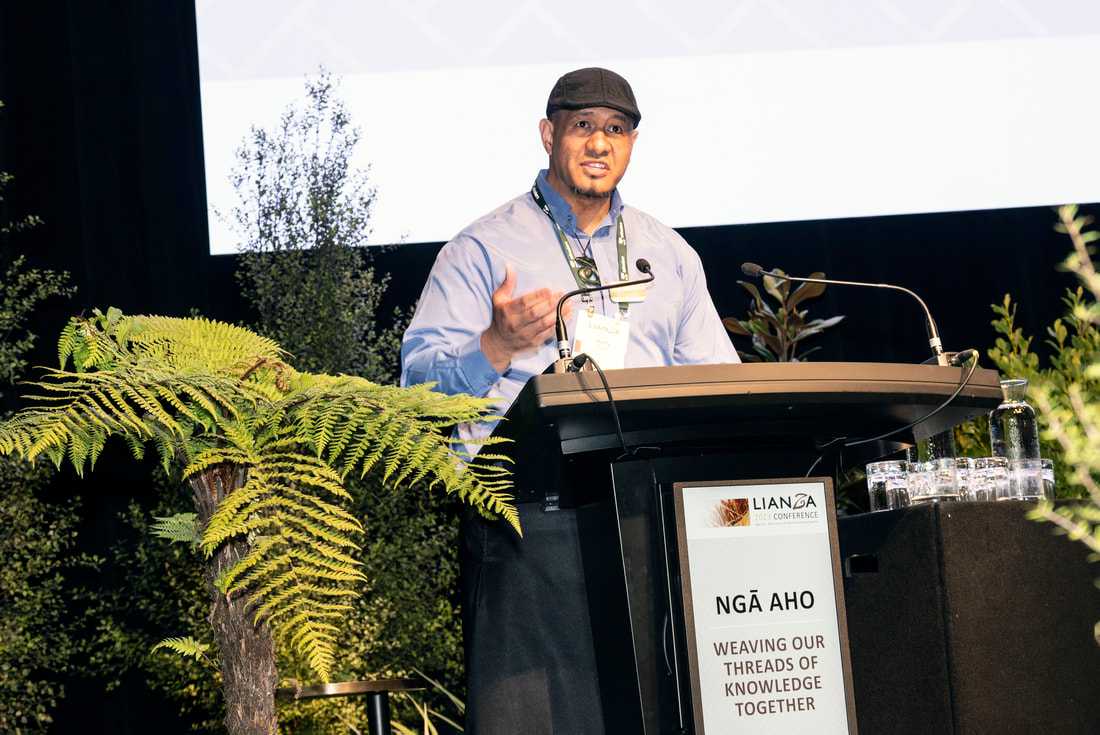
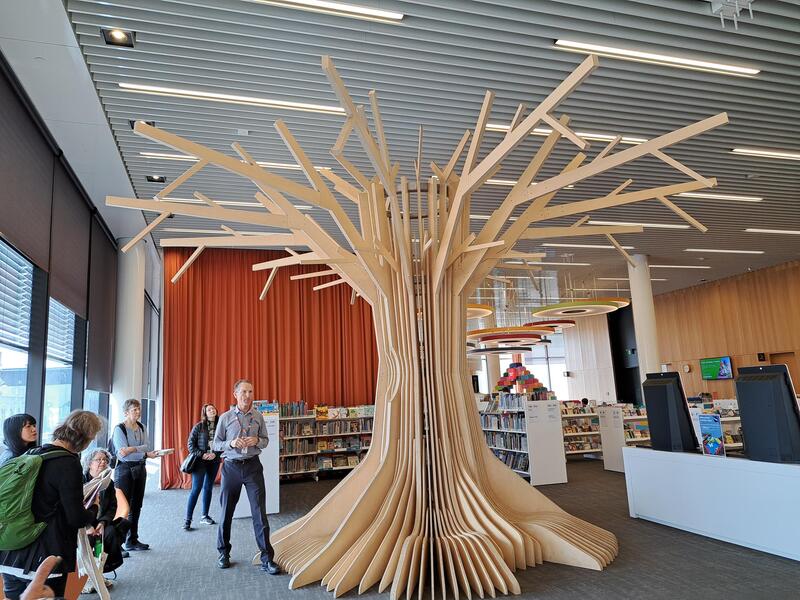
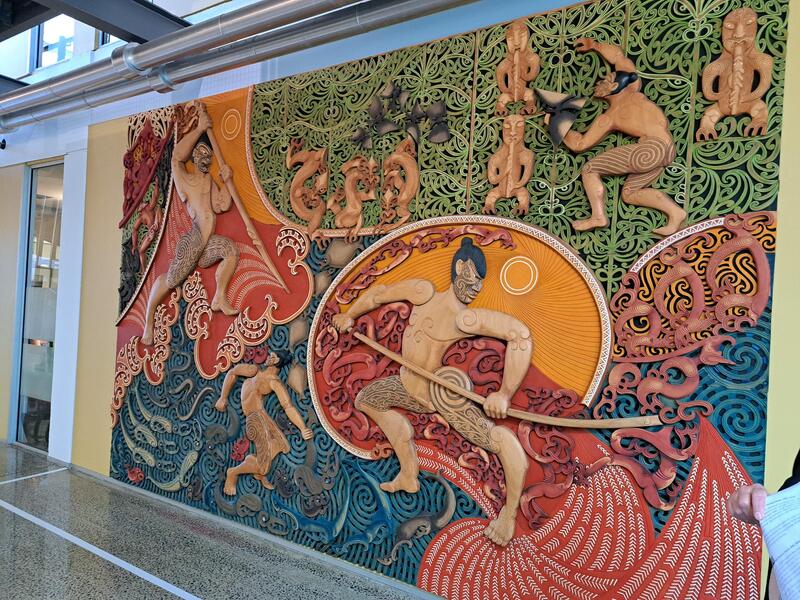
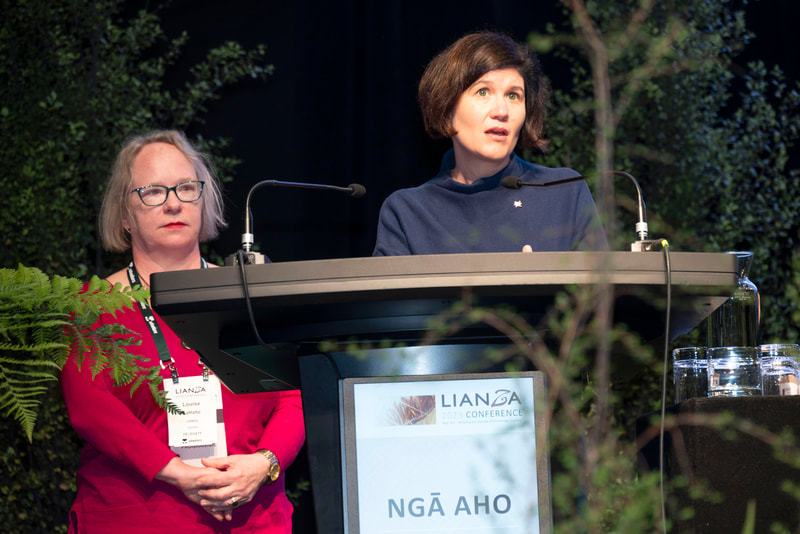
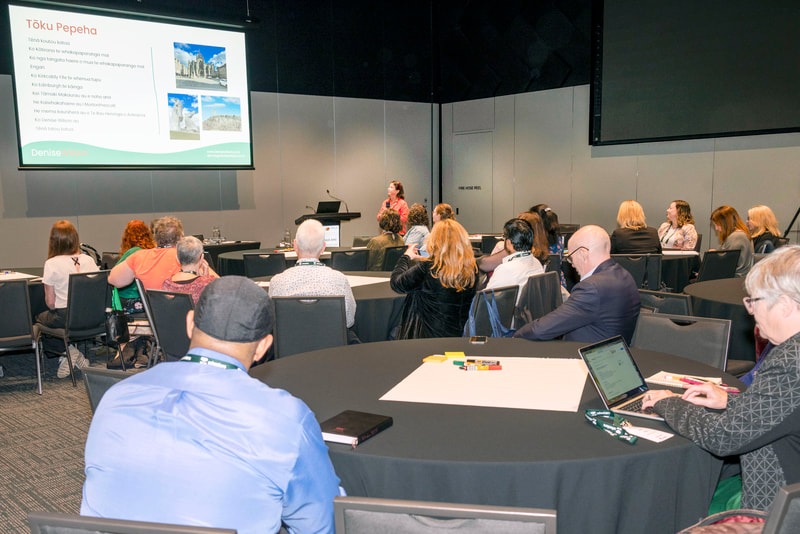
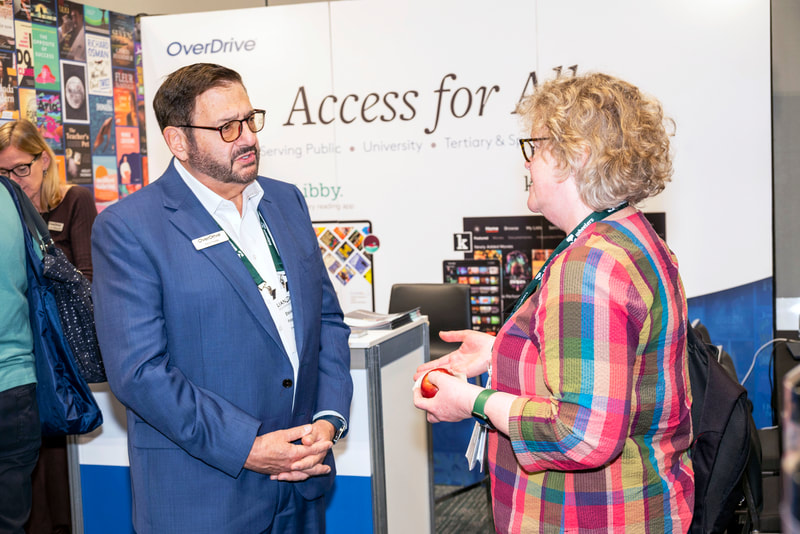
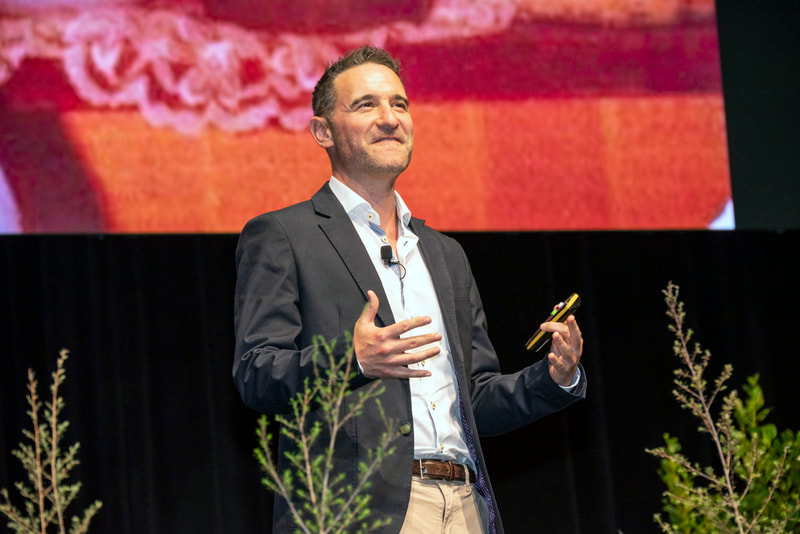
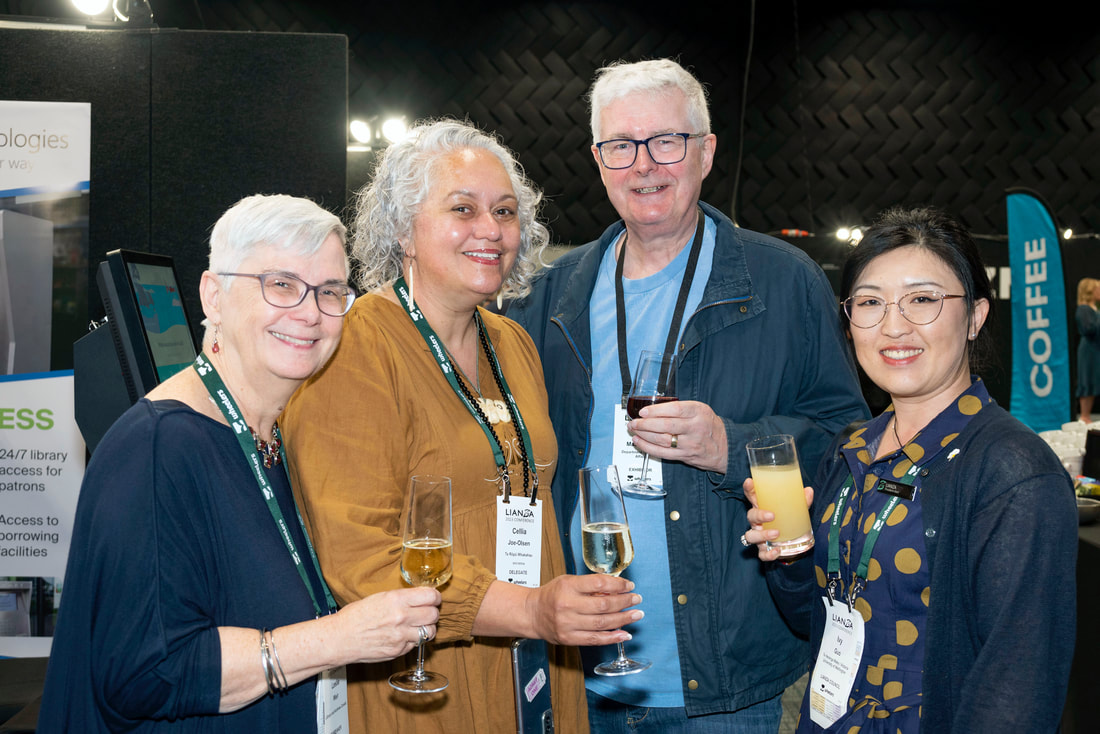

 RSS Feed
RSS Feed